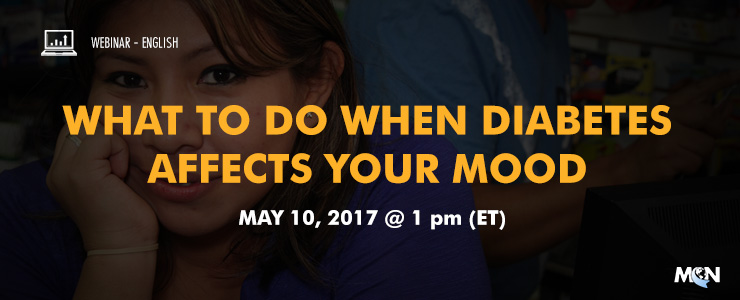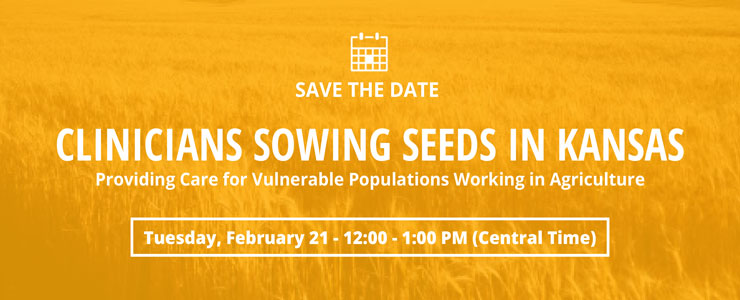"These materials are designed to be simple and useful in helping physicians and health-care professionals to meet the needs of their patients who may be undocumented or suffering stresses related to close family or community members being undocumented. While there are many toolkits being developed, we hope that these materials might be very easy to use and enable the physician or other health-care professional to address the most immediate needs of such patients."
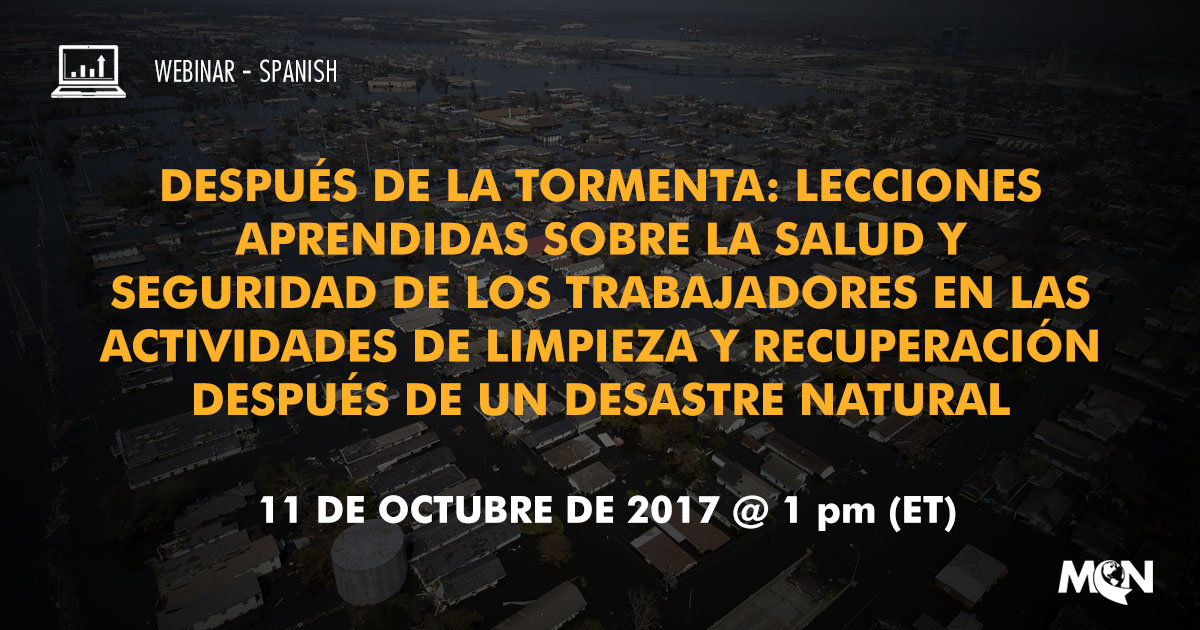
FECHA: 11 de Octubre de 2017 @ 1 PM (ET)
PRESENTADORES:
- Alma R. Galván, MHC, Migrant Clinicians Network
- Richard Rabin, MassCOSH
- Rossana Coto-Batres, MSW, Northeast New York Coalition for Occupational Safety and Health (NENYCOSH)
Crédito de educación continua
Para recibir credito de Trabajador/a de Salud Comunitaria o Educacion de Continua de Enfermera después de ver alguno de estos seminarios usted debe hacer lo siguiente:
- Completar la evaluación participante asociado a cada webinar
- Enviar un correo electrónico con su nombre y apellido indicando que ha completado a malvarado@migrantclinician.org
Descripción
Conforme las familias regresan a sus hogares en Houston, una vez que las inundaciones causadas por los Huracanes Irma y María se van retirando, esto se convierte en una carrera contra el tiempo. Un olor sofocante llena los cuartos de las casas, los charcos permanecen en los pasillos, y el moho se multiplica rápidamente. En cuestión de días, los patios ensopados de los vecinos se convierten en tiraderos de basura, conforme los trabajadores empiezan a quitar de las casas las paredes con moho, los pisos y los cielos destruidos, así como los muebles dañados. En este proceso, los trabajadores y muchos residentes se exponen al agua contaminada con químicos y basura, materiales de construcción peligros y alimañas dañinas. Pero hay otros riesgos adicionales, estructuras inestables y posibles intoxicaciones por monóxido de carbono de los generadores que trabajan incansablemente en espacios con poca ventilación. La exposición a asbestos, sílice y plomo son también peligros comunes para estos trabajadores.
Katrina, Sandy, Harvey, Irma y ahora Maria: son nombres de tormentas que nos indican las diferentes comunidades que terminaron bajo el agua, pero muchas de las historias emanadas de ellas, sobre la limpieza -- y los peligros involucrados-- son las mismas. Con resiliencia y determinación, las comunidades se tratan de reconstruir, pero la reconstrucción necesita una fuerza de trabajo inmediata, lista para este trabajo peligroso y extenuante.
Las operaciones de recuperación después del desastre, limpieza y reconstrucción presentan muchos riesgos y peligros para los trabajadores. Muchos de ellos realizan este trabajo sin el equipo de seguridad o el entrenamiento de mitigación de peligros adecuado.
En la recuperación de una supertormenta, ¿cuáles son las vulnerabilidades que los trabajadores enfrentan y qué significa eso para la seguridad y la salud del trabajador? Las siguientes preguntas surgen para los proveedores y trabajadores de salud comunitarios que cuidan y se preocupan por estos trabajadores: ¿cuáles son los puntos claves que necesitamos entender para poder cuidar de aquellos involucrados en estos esfuerzos de limpieza y reconstrucción? y ¿qué podemos hacer para que ellos mismos prevengan las lesiones y las enfermedades?
Este seminario en línea recupera experiencias obtenidas de desastres naturales anteriores y ofrece recursos que le pueden guiar en su trabajo. Ofreceremos casos reales para ilustrar los peligros y revisaremos formas en que los trabajadores se pueden proteger a sí mismos, incluyendo el entendimiento de sus derechos y responsabilidades.
Objetivos de aprendizaje
- Los participantes identificarán los peligros más comunes y críticos que los trabajadores y residentes encuentras cuando se involucran en la demolicion y reconstruccion despues de un desastre.
- Los participantes articularán las mejores estrategias para educar a los trabajadores y residentes sobre como prevenir lesiones y enfermedades durante las actividades de limpieza y reconstrucción después de huracanes y supertormentas.
- Los participantes enlistarán al menos tres recursos que pueden usar para guiar a los trabajadores y residentes durante la demolición y reconstrucción después de un desastre.
Este proyecto cuenta con el apoyo de la Administración de Recursos y Servicios de Salud (HRSA) del Departamento de Salud y Servicios Humanos de los Estados Unidos bajo el acuerdo de cooperación número U30CS09742, Asistencia Técnica a Centros de Salud Comunitarios y Migrantes y Personas sin Hogar por $ 1,094,709.00 con 0% del total Proyecto NCA financiado con fuentes no federales. Esta información o contenido y las conclusiones son las del autor y no deben ser interpretadas como la posición o política oficial de, ni cualquier endosos deben ser inferidos por HRSA, HHS o el Gobierno de los Estados Unidos.
Offers basic screening questions, common occupations and ailments associated with them, as well as recommended treatment. Also includes sample letters from clinicians to employers for restricted work.
This resource offers training for community based organizations and workers in the aftermath of natural disasters. It includes educational materials as well as trainer guides and tools.
Blog post from the U.S. Department of Labor highlighting common hazards during hurricane cleanup as well as links to additional readings.
Information on keeping food and water safe for consumption and best hygiene practices in the face of disasters.
Offers tips about potential hazards and protective strategies during disaster cleanup.
This page highlights important tools for clinicians as well as diagnoses to consider when caring for disaster-affected patients.
United for Puerto Rico is an initiative brought forth by the First Lady of Puerto Rico, Beatriz Rosselló, in collaboration with the private sector, with the purpose of providing aid and support to those affected in Puerto Rico by the passage of Hurricane Irma and Hurricane María. 100% of the proceeds will go to helping the victims afteced by these natural disasters in Puerto Rico.
This site includes various helpful links including information on health hazards, mold remediation, respirator use, and related policy information.
Comprehensive flood information including links to preparedness and response/recovery pages.
Comprehensive hurricane information including links to preparedness and response/recovery pages.
"To assist health centers in obtaining Federal Emergency Management Agency (FEMA) funding for damaged or destroyed facilities, Capital Link has developed Hurricane Recovery Resources for Health Centers, supported by the Health Resources and Services Administration."
"The Human Diagnosis Project (also referred to as "Human Dx" or "the Project") is a worldwide effort created with and led by the global medical community to build an online system that maps the best steps to help any patient. By combining collective intelligence with machine learning, Human Dx intends to enable more accurate, affordable, and accessible care for all."
A resource by the CDC highlighting the symptoms and signs of carbon monoxide poisoning, which is often a cause of illness and death after a natural disaster.
"Carbon monoxide (CO) is an odorless, colorless, poisonous gas that can cause sudden illness and death if present in sufficient concentration in the ambient air. When power outages occur during emergencies such as hurricanes or winter storms, the use of alternative sources of fuel or electricity for heating, cooling, or cooking can cause CO to build up in a home, garage, or camper and poison the people and animals inside." - CDC
Safety and Health Practicesfor Nail Salon Workers and a Training Guide for Nail Salon Worker Safety and Health Outreach Program
- Best_Practices_HOPE.pdf (230 KB)
- Trainer_Guide_HOPE.pdf (1.34 MB)
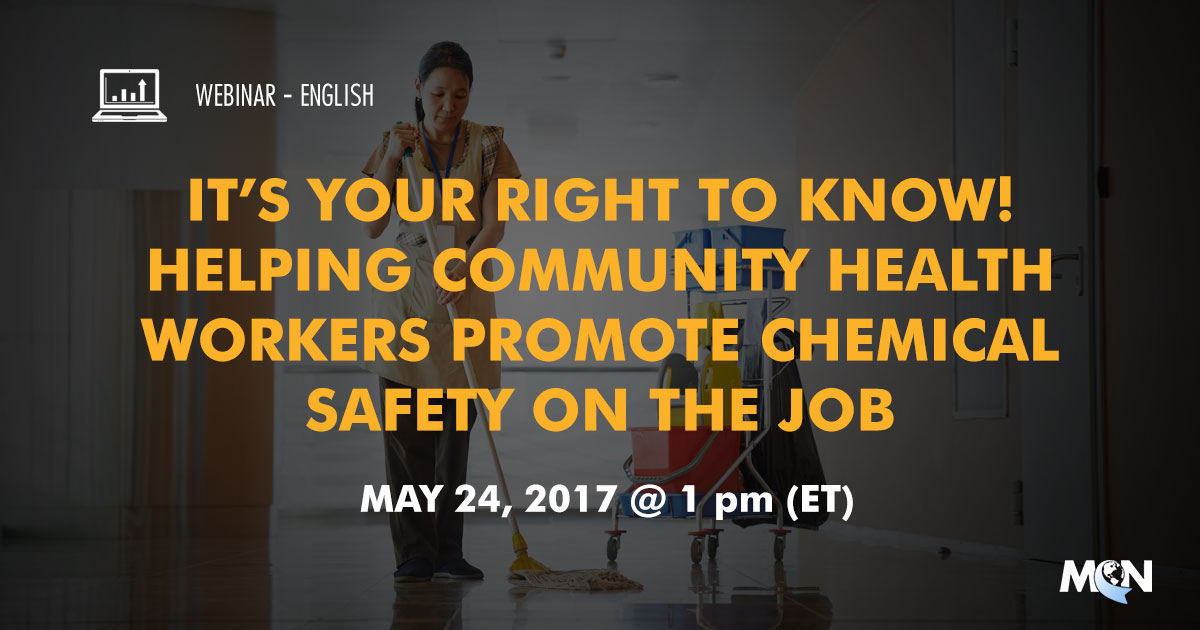
DATE: May 24, 2017, 1 pm (ET)
SPEAKERS: Juliana Simmons, MSPH, CHES
Continuing Education Credit
To receive CME* or CNE credit after viewing this webinar, you must:
- Complete the Participant Evaluation associated with this webinar
- Send an email with your first and last name stating which webinar you completed to contedu@migrantclinician.org
Description
José Navarro was excited for his new career after landing a job in the poultry industry. After five years on the job, 37 year-old Navarro began coughing up blood. He died soon after when his lungs and kidneys failed. His death triggered a federal investigation raising questions about the health risks associated with the use of toxic chemicals in poultry plants.
Millions of workers are exposed to chemicals everyday on the job. All workers have the right to know about the chemicals they work with and community health workers can be an important source of information and support for workers. This workshop will teach community health workers how to explain what happens when someone is exposed to chemicals and how workers can best protect themselves
Learning Objectives
- Recognize how workers become exposed to chemicals and illnesses
- Describe basic safety practices when working around chemicals
- Understand the role of community health workers in identifying and preventing work related illnesses and hazards
This project is supported by the Health Resources and Services Administration (HRSA) of the U.S. Department of Health and Human Services (HHS) under cooperative agreement number U30CS09742, Technical Assistance to Community and Migrant Health Centers and Homeless for $1,094,709.00 with 0% of the total NCA project financed with non-federal sources. This information or content and conclusions are those of the author and should not be construed as the official position or policy of, nor should any endorsements be inferred by HRSA, HHS or the U.S. Government.
DATE: May 10, 2017, 1 pm (ET)
SPEAKERS: Patria Alguila and Ileana Ponce-Gonzalez, MD, MPH, CNC
Continuing Education Credit
To receive CME* or CNE credit after viewing this webinar, you must:
- Complete the Participant Evaluation associated with this webinar
- Send an email with your first and last name stating which webinar you completed to contedu@migrantclinician.org
Description
In this webinar participants will be able to identify the Health Resource Services Administration performance measures related to depression, describe symptoms of depression, understand how to encourage patients to control and manage their diabetes and depression, and understand the principle barriers faced by patients in the control and management of their diabetes and depression
Learning Objectives
- Define the term mental illness
- List at least two symptoms of depression
- Define the HRSA quality measure for depression screening
- Understand at least one barrier in the control of diabetes and depression
This project is supported by the Health Resources and Services Administration (HRSA) of the U.S. Department of Health and Human Services (HHS) under cooperative agreement number U30CS09742, Technical Assistance to Community and Migrant Health Centers and Homeless for $1,094,709.00 with 0% of the total NCA project financed with non-federal sources. This information or content and conclusions are those of the author and should not be construed as the official position or policy of, nor should any endorsements be inferred by HRSA, HHS or the U.S. Government.
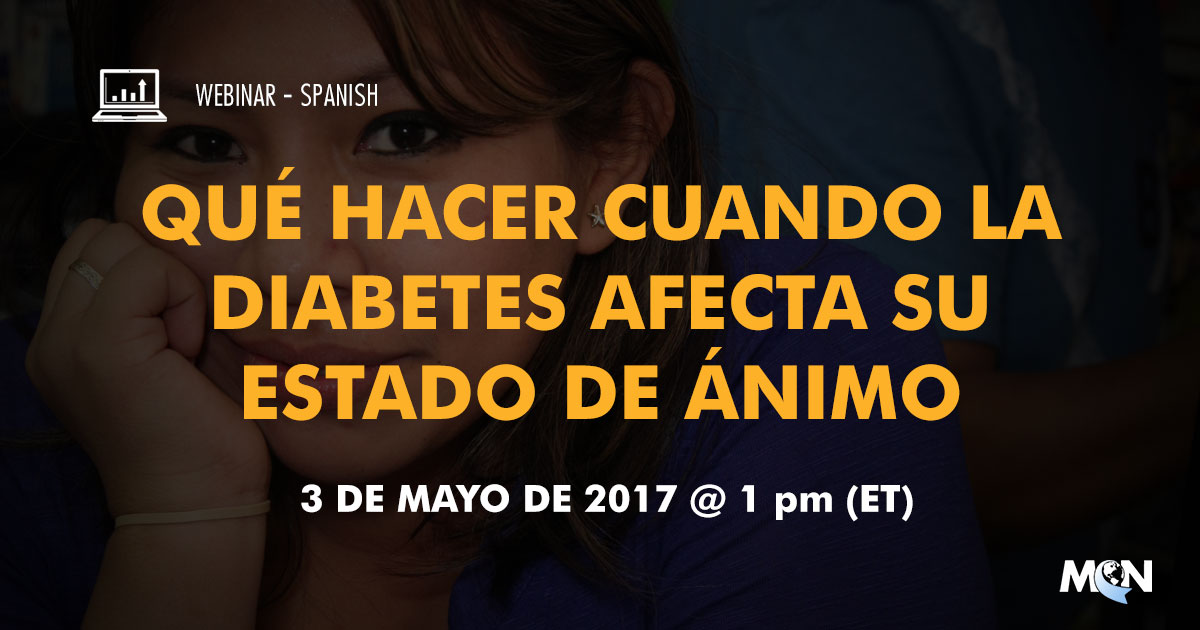
FECHA DE GRABACION: 3 de Mayo de 2017, 1 pm ET (zona horaria del Este)
ORADORAS: Ileana Ponce-Gonzalez, MD, MPH y Daniel Ramos, MPH
Crédito de educación continua
Para recibir credito de Trabajador/a de Salud Comunitaria o Educacion de Continua de Enfermera después de ver alguno de estos seminarios usted debe hacer lo siguiente:
- Completar la evaluación participante asociado a cada webinar
- Enviar un correo electrónico con su nombre y apellido indicando que ha completado a contedu@migrantclinician.org
Descripción
En este seminario los participantes podrán identificar las medidas de desempeño de la Administración de Servicios de Recursos de Salud relacionadas con la depresión, podrán describir los síntomas de la depresión, entender cómo alentar a los pacientes para que ellos mismos puedan controlar su diabetes y depresión, y comprender las barreras principales que enfrentan pacientes con diabetes en el control y manejo de su enfermedad y la depresión.
Objetivos de aprendizaje
- Definir el término ‘enfermedad mental’
- Enumerar al menos dos síntomas de la depresión
- Definir las medidas de calidad de HRSA para el cribado de la depresión
- Entender al menos una barrera en el control de la diabetes y la depresión
Lectura Adicional
- https://www.cdc.gov/mentalhealthsurveillance/fact_sheet.html
- http://www.apa.org/helpcenter/data-behavioral-health.aspx
- https://en.wikipedia.org/wiki/Comorbidity
- https://www.cdc.gov/mentalhealthsurveillance/fact_sheet.html
- http://www.diabetes.org/living-with-diabetes/complications/mental-health/depression.html
- https://www.qualitymeasures.ahrq.gov/hhs/content.aspx?id=3527#.WJ4xsm8rKUk
- http://www.integration.samhsa.gov/clinical-practice/screening-tools#depression
- http://www.mentalhealthamerica.net/mental-health-screening-tools
- https://psychcentral.com/lib/diabetes-and-depression/
- http://www.diabetes.org/living-with-diabetes/complications/mental-health/stress.html
- http://www.diabetes.org/living-with-diabetes/complications/mental-health/
- https://www.adaa.org/finding-help/treatment/complementary-alternative-treatment
- https://www.psychologytoday.com/blog/when-your-adult-child-breaks-your-heart/201401/addressing-mental-health-treatment-barriers
- http://www.mayoclinic.org/diseases-conditions/diabetes/basics/risk-factors/con-20033091
- https://www.ptsd.va.gov/public/ptsd-overview/basics/symptoms_of_ptsd.asp
- https://www.psychologytoday.com/blog/hide-and-seek/201205/the-7-reasons-why-depression-is-more-common-in-women
Este proyecto cuenta con el apoyo de la Administración de Recursos y Servicios de Salud (HRSA) del Departamento de Salud y Servicios Humanos de los Estados Unidos bajo el acuerdo de cooperación número U30CS09742, Asistencia Técnica a Centros de Salud Comunitarios y Migrantes y Personas sin Hogar por $ 1,094,709.00 con 0% del total Proyecto NCA financiado con fuentes no federales. Esta información o contenido y las conclusiones son las del autor y no deben ser interpretadas como la posición o política oficial de, ni cualquier endosos deben ser inferidos por HRSA, HHS o el Gobierno de los Estados Unidos.
- https://www.cdc.gov/mentalhealthsurveillance/fact_sheet.html
- http://www.apa.org/helpcenter/data-behavioral-health.aspx
- https://en.wikipedia.org/wiki/Comorbidity
- http://www.diabetes.org/living-with-diabetes/complications/mental-health/depression.html
- https://www.qualitymeasures.ahrq.gov/hhs/content.aspx?id=3527#.WJ4xsm8rKUk
- http://www.integration.samhsa.gov/clinical-practice/screening-tools#depression
- http://www.mentalhealthamerica.net/mental-health-screening-tools
- https://psychcentral.com/lib/diabetes-and-depression/
- http://www.diabetes.org/living-with-diabetes/complications/mental-health/stress.html
- http://www.diabetes.org/living-with-diabetes/complications/mental-health/
- https://www.adaa.org/finding-help/treatment/complementary-alternative-treatment
- https://www.psychologytoday.com/blog/when-your-adult-child-breaks-your-heart/201401/addressing-mental-health-treatment-barriers
- http://www.mayoclinic.org/diseases-conditions/diabetes/basics/risk-factors/con-20033091
- https://www.ptsd.va.gov/public/ptsd-overview/basics/symptoms_of_ptsd.asp
- https://www.psychologytoday.com/blog/hide-and-seek/201205/the-7-reasons-why-depression-is-more-common-in-women
"Emerging Infectious Diseases is an open access journal published monthly by the Centers for Disease Control and Prevention (CDC)." ... "Emerging Infectious Diseases follows the International Committee of Medical Journal Editors recommendations for the conduct, reporting, editing, and publishing of scholarly work in medical journals. The journal’s peer review process allows for critical assessment of submitted manuscripts by experts who are usually not part of its editorial staff. As an independent publication, the journal’s peer-review process operates independently from CDC’s clearance processes."
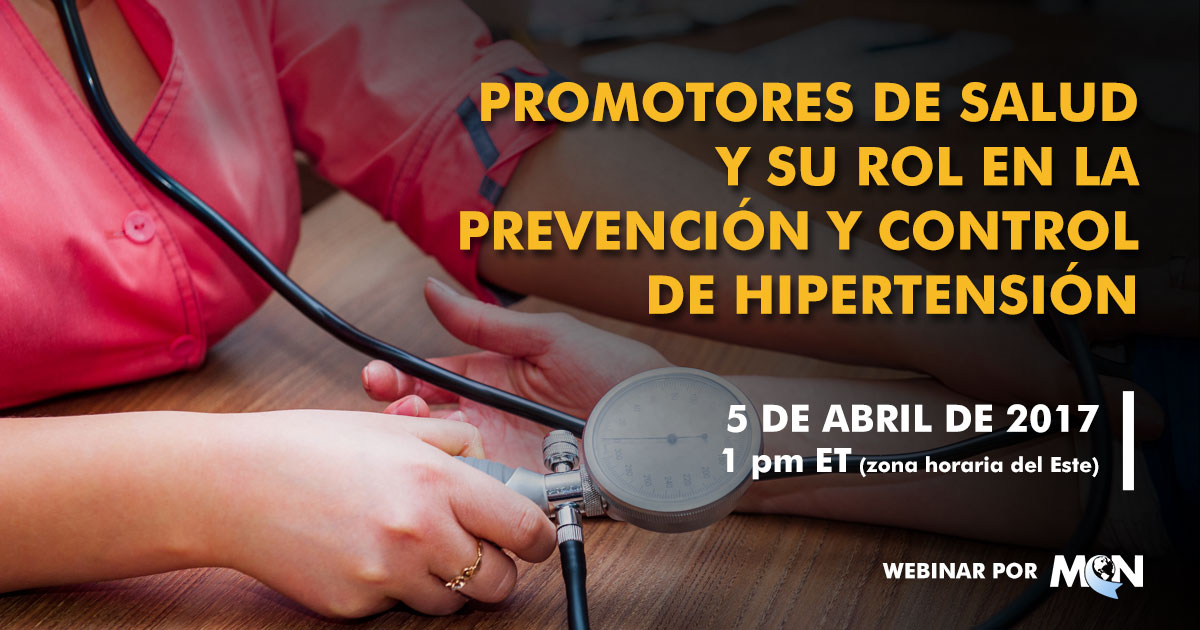
FECHA DE GRABACION: 5 de Abril de 2017, 1 pm ET (zona horaria del Este)
ORADORA: Ileana Ponce-González, MD, MPH, CNC
Crédito de educación continua
Para recibir credito de Trabajador/a de Salud Comunitaria o Educacion de Continua de Enfermera después de ver alguno de estos seminarios usted debe hacer lo siguiente:
- Completar la evaluación participante asociado a cada webinar
- Enviar un correo electrónico con su nombre y apellido indicando que ha completado a contedu@migrantclinician.org
Descripción
En este webinar, los participantes podrán identificar las medidas de desempeño de la Administración de Servicios de Recursos de Salud relacionadas con la hipertensión, describir cómo medir la hipertensión en el cuerpo, entender cómo alentar a los pacientes a controlar y manejar su presión arterial alta y entender las principales barreras que enfrentan pacientes en el control y manejo de su presión arterial alta.
Objetivos de aprendizaje
- Identificar los síntomas y signos de presiones sanguíneas altas
- Describir cómo se puede medir la hipertensión en el cuerpo
- Alentar a los pacientes a controlar y manejar su presión arterial alta
- Comprender las principales barreras que enfrentan los pacientes en el control de su presión arterial alta
Lectura Adicional
- HRSA: Hypertension Controls
- NIH: Help Your Heart: Control Your High Blood Pressure - Handouts
- NIH: Description of High Blood Pressure
- NIH: How Is High Blood Pressure Treated?
- NIH: Impediments to and potential strategies for effective blood pressure control
- USPSTF, AAFP Finalize Hypertension Screening Recommendations for Adults
- WSDF: Improving the Screening, Prevention, and Management of Hypertension
Este proyecto cuenta con el apoyo de la Administración de Recursos y Servicios de Salud (HRSA) del Departamento de Salud y Servicios Humanos de los Estados Unidos bajo el acuerdo de cooperación número U30CS09742, Asistencia Técnica a Centros de Salud Comunitarios y Migrantes y Personas sin Hogar por $ 1,094,709.00 con 0% del total Proyecto NCA financiado con fuentes no federales. Esta información o contenido y las conclusiones son las del autor y no deben ser interpretadas como la posición o política oficial de, ni cualquier endosos deben ser inferidos por HRSA, HHS o el Gobierno de los Estados Unidos.
- http://migrantclinician.adobeconnect.com/p71v9ojksgg/?OWASP_CSRFTOKEN=19499ccb24fdb83af0f6a5e559d20d4f5fffa5406927c78fbb67676b38141c94
- http://www.hrsa.gov/quality/toolbox/measures/hypertension/
- https://www.nhlbi.nih.gov/health-pro/resources/heart/hispanic-health-manual/session-4#handouts
- https://www.nhlbi.nih.gov/health/health-topics/topics/hbp
- https://www.nhlbi.nih.gov/health/health-topics/topics/hbp/treatment
- https://www.ncbi.nlm.nih.gov/pmc/articles/PMC1993926/table/tbl1/
- http://www.aafp.org/news/health-of-the-public/20151015htnprevrec.html
- https://www.healthit.gov/sites/default/files/13_bptoolkit_e13l.pdf
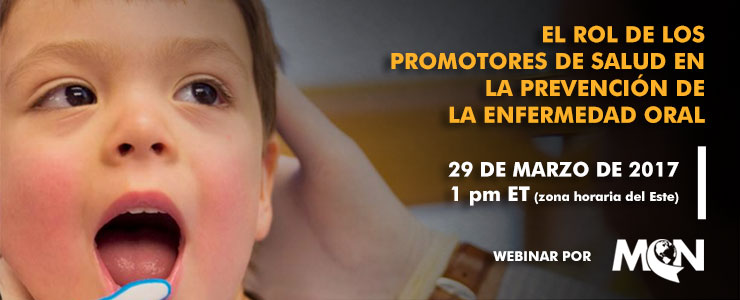
FECHA DE GRABACION: 29 de Marzo de 2017, 1 pm ET (zona horaria del Este)
ORADORA: Ileana Ponce-González, MD, MPH, CNC
Crédito de educación continua
Para recibir credito de Trabajador/a de Salud Comunitaria o Educacion de Continua de Enfermera después de ver alguno de estos seminarios usted debe hacer lo siguiente:
- Completar la evaluación participante asociado a cada webinar
- Enviar un correo electrónico con su nombre y apellido indicando que ha completado a contedu@migrantclinician.org
Descripción
En este seminario los participantes serán capaces de identificar las medidas de rendimiento de HRSA relacionadas con la salud bucodental, así como los factores de riesgo para la mala salud bucal. También reflexionaremos sobre el importante papel que desempeñan los promotores de salud en la mejora del acceso a los servicios de salud bucodental.
Objetivos de aprendizaje
- Describa la oferta de servicios orales preventivos y adicionales requeridos en su centro de salud
- Describa las medidas orales de HRSA
- Comprender el papel de los trabajadores comunitarios de salud en la prevención de la enfermedad bucodental
Lectura Adicional
- ADA Store—Brochures for purchase: https://goo.gl/xF1zWU
- ADA Facebook and Twitter ads (free images): https://goo.gl/Q2zsug
- WDS Foundation—Free materials: https://goo.gl/FYxdri
- ADA Practice Guidelines (2016): https://goo.gl/pzyfOd
- Medicaid/CHIP Dental Sealant Measure in the Child Core Set: https://goo.gl/n66YAD
- Texas Health and Human Service: https://goo.gl/H6fAKL
Este proyecto cuenta con el apoyo de la Administración de Recursos y Servicios de Salud (HRSA) del Departamento de Salud y Servicios Humanos de los Estados Unidos bajo el acuerdo de cooperación número U30CS09742, Asistencia Técnica a Centros de Salud Comunitarios y Migrantes y Personas sin Hogar por $ 1,094,709.00 con 0% del total Proyecto NCA financiado con fuentes no federales. Esta información o contenido y las conclusiones son las del autor y no deben ser interpretadas como la posición o política oficial de, ni cualquier endosos deben ser inferidos por HRSA, HHS o el Gobierno de los Estados Unidos.
Includes EPA manual "How to Comply With the 2015 Revised Worker Protection Standard For Agricultural Pesticides - What Owners and Employers Need To Know" and an excerpt specifically for clininicians regarding medical evaluation and respirator fit test. See also the medical evaluation questions in English and Spanish.
DATE: February 21, 2017
SPEAKERS: Ed Zuroweste, MD
Continuing Education Credit
To receive CME* or CNE credit after viewing this webinar, you must:
- Complete the Participant Evaluation associated with this webinar
- Send an email with your first and last name stating which webinar you completed to contedu@migrantclinician.org
Description
Agriculture is also one of the most dangerous industries in the United States. For vulnerable populations working in agriculture, their lack of training, poor safety precautions, regulatory exclusions, lack of health insurance, language barriers, piece-rate pay, immigration status, and geographical and cultural isolation can put these workers at increased risk for occupationally related injuries and illnesses and chronic sequelae. Exposure to pesticides and other contaminants is a particular concern to agricultural workers and their families. This continuing education training will discuss health risks facing immigrant and migrant agricultural workers and their families as a result of their working conditions and environment, with a particular focus on Kansas. It will also highlight best practices and resources for the incorporation of environmental and occupational health in the practice setting, showcasing successful initiatives in primary care settings. Participants will explore the importance of and become familiar with the methods to integrate environmental and occupational health into the practice setting from the clinical perspective as well as consider these issues within the framework of social determinants of health.
Resources
- MCN's Environmental and Occupational Health Program (Migrant Health Center Partnership Description)
- MCN's EOH Screening Tool
- Farmworker Clinicians Manual
- Pesticide Reporting and Workers’ Compensation in Agriculture - Interactive Map
- EPA Recognition and Management of Pesticide Poisonings
- MCN & Farmworker Justice Clinician Guides for Farmworker Health and Safety Regulations
- Patient Education Materials
- Immigrant Dairy Worker Health and Safety
- iCuídate!, a comic book aimed at preventing musculoskeletal injuries among farmworkers
- Pesticide Comic Books
This material was produced, in part, under Assistance Agreement No. X883487601 awarded by the U.S. Environmental Protection Agency. It has not been formally reviewed by EPA. EPA does not endorse any products or commercial services mentioned in this product.
Substance Use Warmline
Peer-to-Peer Consultation and Decision Support
10 am – 6 pm EST Monday - Friday
855-300-3595
Free and confidential consultation for clinicians from the Clinician Consultation Center at San Francisco General Hospital focusing on substance use in primary care
Objectives of the Substance Use Warmline:
- Support primary care providers in managing complex patients with addiction, chronic pain, and behavioral health issues
- Improve the safety of medication regimens to decrease the risk of overdose
- Enhance the treatment, care and support for people living with or at risk for HIV
- Discuss useful strategies for clinicians in managing their patients living with substance use, addiction and chronic pain.
Consultation topics include:
- Assessment and treatment of opioid, alcohol, and other substance use disorders
- Approaches to suspected misuse, abuse, or diversion of prescribed opioids
- Methods to simplify opioid-based pain regimens to reduce risk of misuse and toxicity
- Urine toxicology testing- when to use it and what it means
- Use of buprenorphine and the role of methadone maintenance
- Withdrawal management for opioids, alcohol, and other CNS depressants
- Harm reduction strategies and overdose prevention
- Managing substance use in special populations (pregnancy, HIV, hepatitis)
- Productive ways of discussing (known or suspected) addiction with patients.
The CCC’s multi-disciplinary team of expert physicians, clinical pharmacists and nurses provides consultation to help clinicians manage complex patient needs, medication safety, and a rapidly evolving regulatory environment.
Learn more at http://nccc.ucsf.edu/clinician-consultation/substance-use-management
- CCC Substance Use Warmline Flier EST 7.25.16.pdf (112.12 KB)
This 90-minute webinar was created for physicians, nurses, and other health professionals who treat and case manage patients with active TB. The webinar introduced the 2016 Official American Thoracic Society/Centers for Disease Control and Prevention/Infectious Diseases Society of America Clinical Practice Guidelines: Treatment of Drug-Susceptible Tuberculosis. This training highlighted the guidelines development process, the key changes in recommendations, and discussed the evidence supporting the changes. The webinar was originally presented on November 4, 2016. This training was jointly sponsored by all 5 RTMCCs.
Diabetes HealthSense provides easy access to resources to help you live well and meet your goals—whether you have diabetes or are at risk for the disease. Available in English.
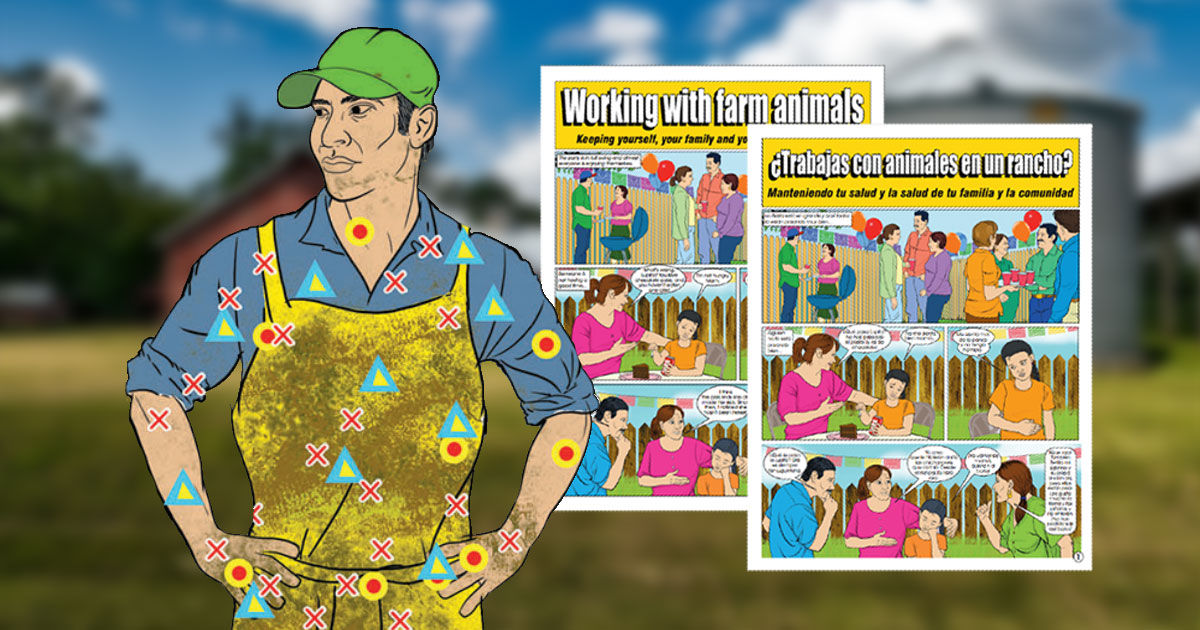
Libro cómic educativo bilingüe sobre cómo prevenir las enfermedades zoonóticas. Desarrollado por MCN en colaboración con la Universidad Estatal de Ohio.
- Working with farm animals_1.pdf (13.33 MB)
- Trabajos con animales en un rancho_1.pdf (13.31 MB)
